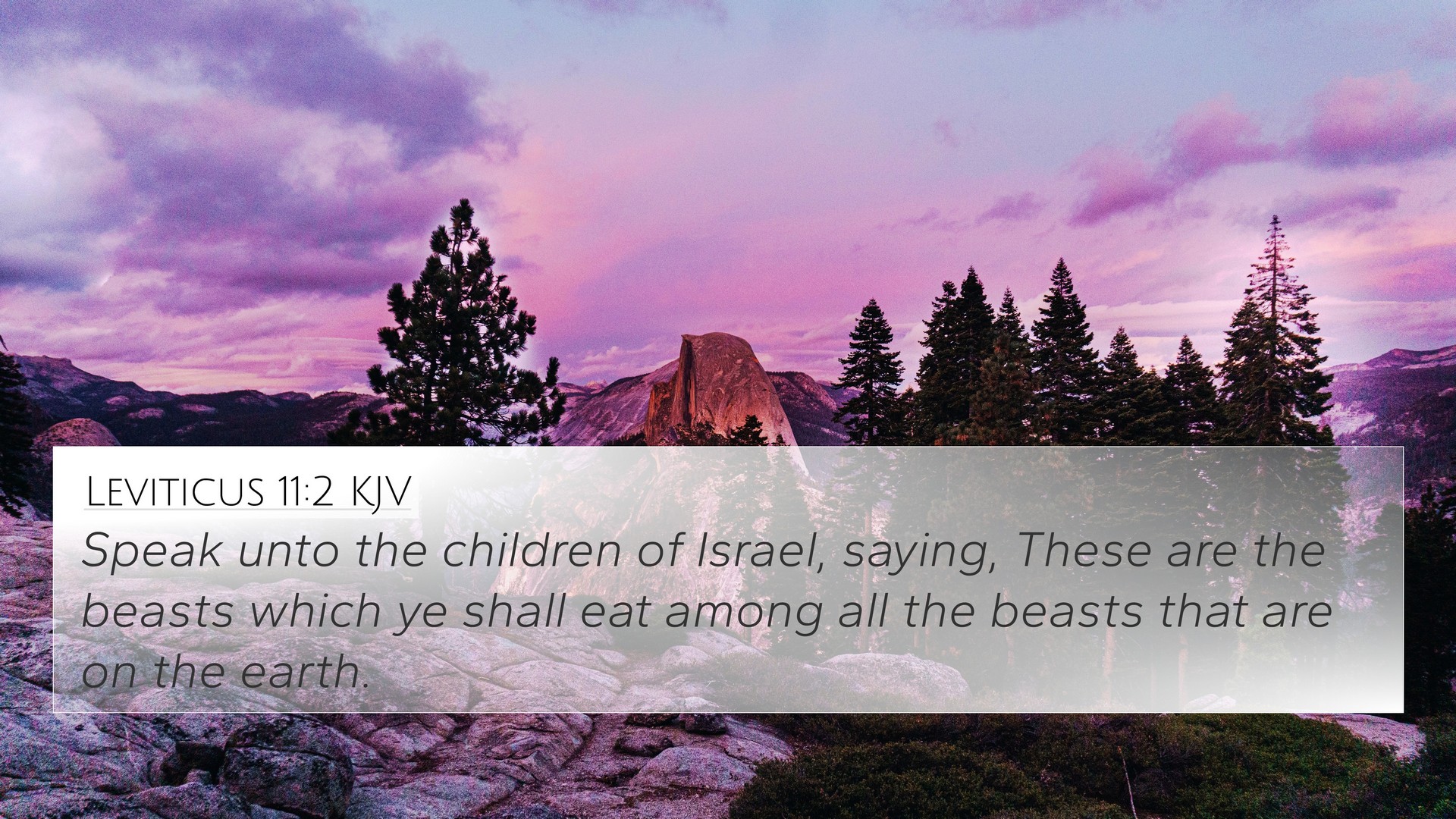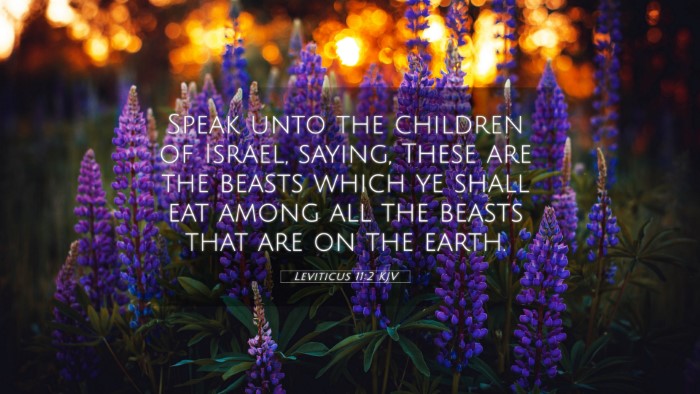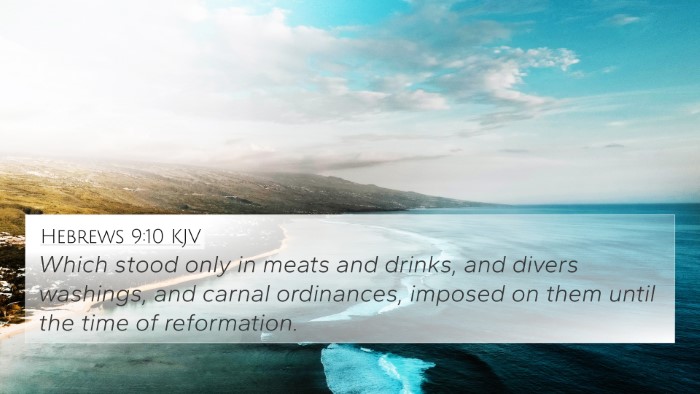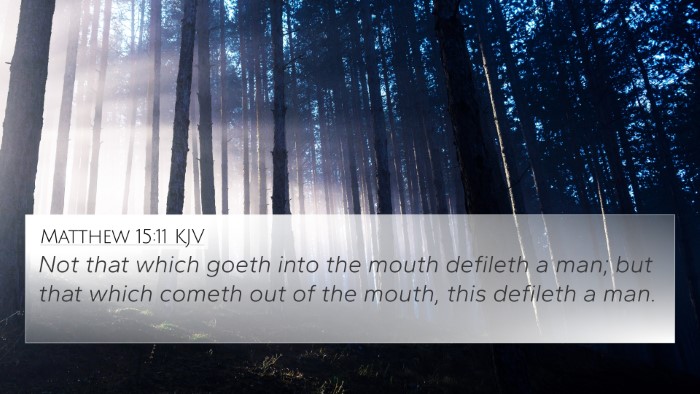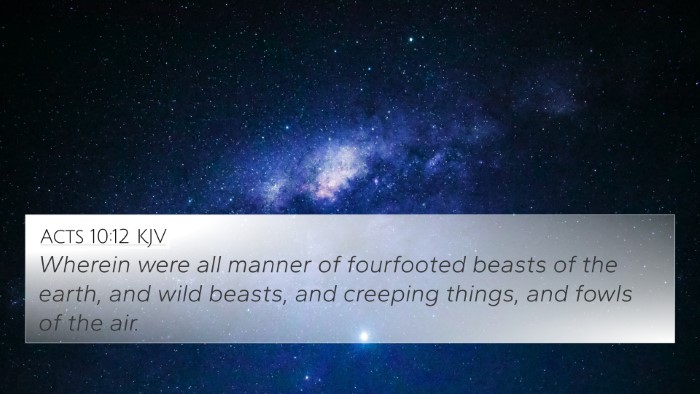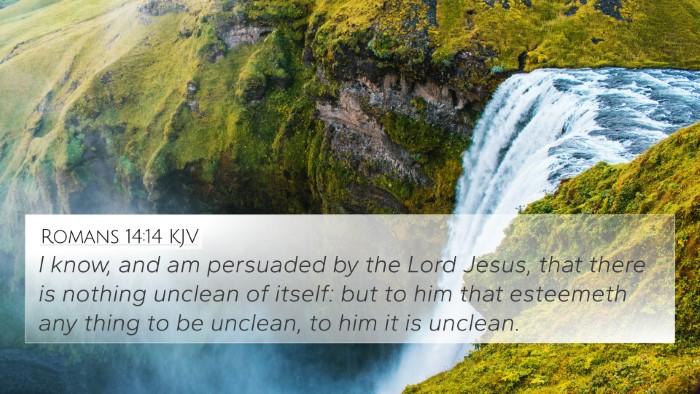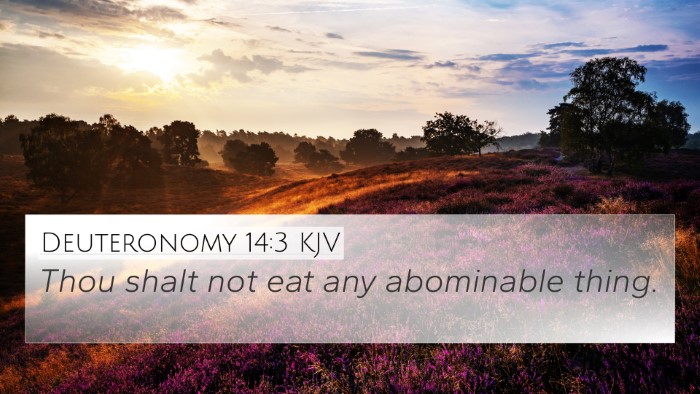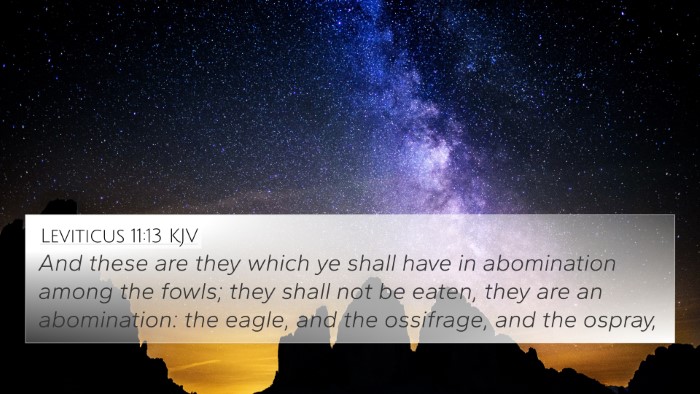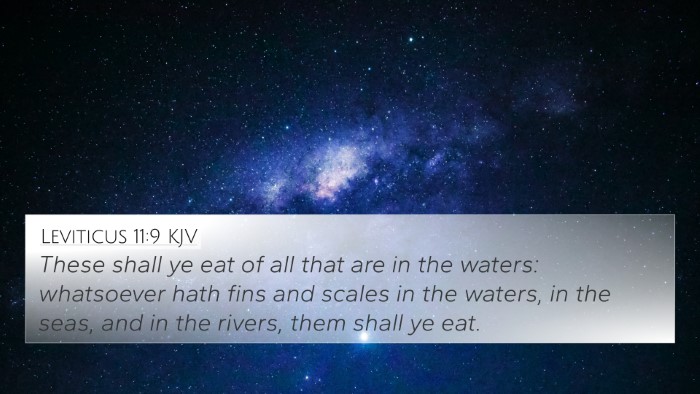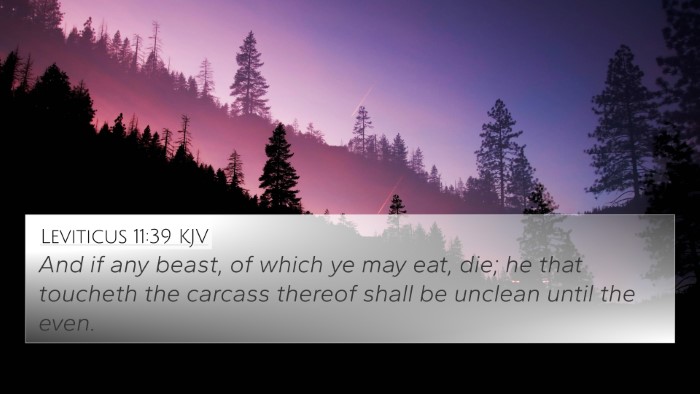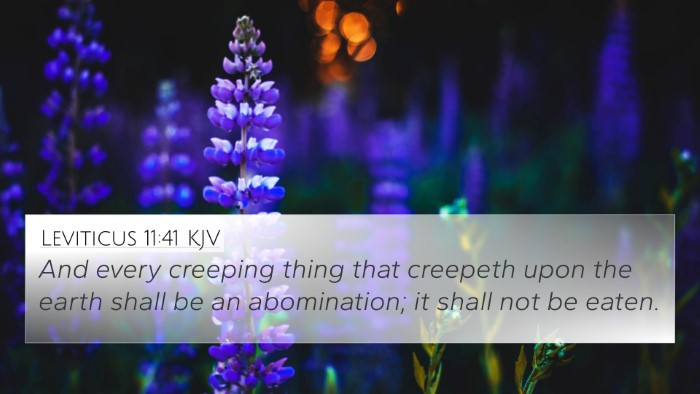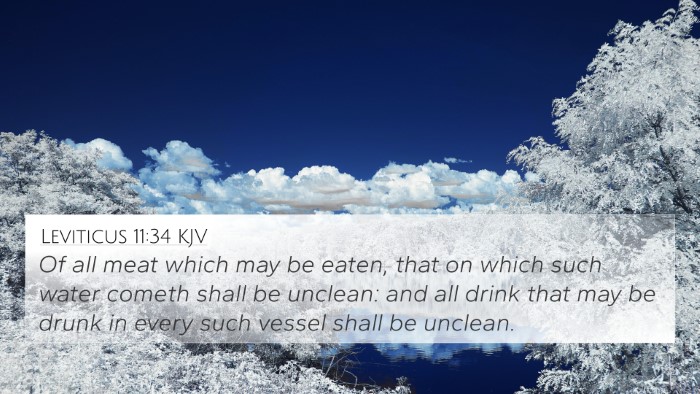Understanding Leviticus 11:2
Bible Verse: Leviticus 11:2
"Speak unto the children of Israel, saying, These are the beasts which ye shall eat among all the beasts that are on the earth."
Overview of Leviticus 11:2
This verse serves as an introduction to God's dietary laws for the Israelites, outlining which animals are permissible for them to eat. The prescribed regulations are intended to set Israel apart from other nations and reinforce their covenant identity with God.
Commentary Insights
Matthew Henry's Commentary
Matthew Henry emphasizes that the dietary laws were not merely arbitrary rules but had deeper purposes. They aimed to promote health and holiness among the people. The classification of clean and unclean animals reflects God's sovereignty over creation and His desire for His people to maintain a distinct lifestyle.
Albert Barnes' Notes
Albert Barnes points out that these laws were meant to teach the Israelites about purity in various aspects of life, including food. By obeying these commandments, they were continually reminded of their special relationship with God. Barnes also highlights that the distinction between clean and unclean foreshadows deeper spiritual truths found in the New Testament concerning purity and righteousness.
Adam Clarke's Commentary
Adam Clarke elaborates on the social and cultural implications of the dietary laws. He suggests that such regulations fostered a sense of community and identity among the Israelites. Clarke also notes that these dietary rules can be perceived as a precursor to the New Testament teachings on grace and the fulfillment of the law through Christ, where spiritual sustenance transcends mere physical provisions.
Bible Cross-References
Leviticus 11:2 is interconnected with various other scriptures that enhance our understanding of its themes:
- Deuteronomy 14:3-21: Further elaborates on the dietary laws, detailing clean and unclean animals.
- Romans 14:14: Paul discusses the perspective on clean and unclean foods as part of Christian liberty.
- Acts 10:15: God reveals to Peter that no food is unclean, indicating a shift in the understanding of the law.
- 1 Timothy 4:4-5: Affirms that all food created by God is good if received with thanksgiving, highlighting the transition from the Old Covenant.
- Hebrews 9:10: Explains the regulations of food and drink under the Old Covenant, comparing it to the New Covenant.
- Mark 7:18-19: Jesus teaches that what goes into a person does not defile them, challenging traditional views on dietary laws.
- Galatians 3:24-25: Discusses how the law served as a guide until Christ came, indicating a transformative understanding of righteousness.
Thematic Bible Verse Connections
Understanding Leviticus 11:2 in the context of the entire Scripture reveals rich thematic connections:
- Separation: The concepts of being clean vs. unclean resonate with the call to holiness found throughout the Bible.
- Righteousness: The dietary laws symbolize the pursuit of purity that is fulfilled in Christ.
- God's Sovereignty: This scripture reflects God's authority in defining right and wrong, which is a recurring theme in the Bible.
Cross-Referencing Biblical Texts
The practice of cross-referencing helps believers see how different passages of the Bible inform and interpret each other. By examining Leviticus 11:2 alongside New Testament teachings, one can observe the continuity and fulfillment of the law through Jesus Christ. Tools for Bible cross-referencing, such as a Bible concordance or cross-reference Bible study, can assist in this exploration.
Conclusion
Leviticus 11:2 not only details God’s dietary regulations but also serves as a springboard for deeper spiritual reflection on cleanliness, holiness, and community identity. By connecting this verse with other Scriptures and employing various cross-referencing methods, readers can gain comprehensive insights into God's design for His people.
